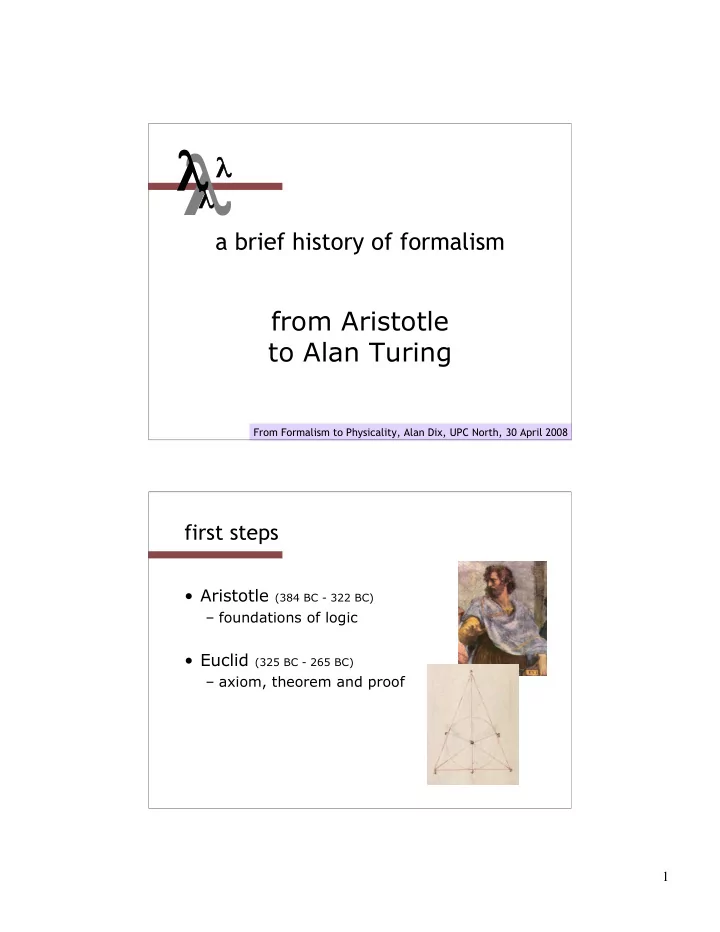

� � � � a brief history of formalism from Aristotle to Alan Turing From Formalism to Physicality, Alan Dix, UPC North, 30 April 2008 first steps • Aristotle (384 BC - 322 BC) – foundations of logic • Euclid (325 BC - 265 BC) – axiom, theorem and proof 1
breakthrough • Evariste Galois (1811–1832) – solving the quintic – proving the impossible – formalising groups I have not time. I have not time. I have not time. I have not time. I have not time. I have not time. I have not time. I have not time. babel grows ... 1/1 2/1 3/1 4/1 5/1 6/1 ... 1/2 2/2 3/2 4/2 5/2 6/2 ... 1/3 2/3 3/3 4/3 5/3 6/3 • Georg Cantor (1845–1918) ... 1/4 2/4 3/4 4/4 5/4 6/4 – foundations of set theory ... – mathematics of the infinite 1/5 2/5 3/5 4/5 5/5 6/5 ... 1/6 2/6 3/6 4/6 5/6 6/6 ... ... ... ... ... ... • James Clerk Maxwell (1831–1879) – Maxwell’s equations – unifying electricity and magnetism – the theory of everything 2
the cracks form The next line is true. The last line was false. • self-reference – all Cretans are liars Epimenides the Cretan (6th century BC) – the Russell Paradox • the set that doesn’t contain itself { X | X � X } • uncertainty at the centre – Einstein’s relativity – quantum mechanics battling on • Bertrand Russell (1872–1970) – Principia Mathematica (with Whitehead) – reducing mathematics to logic – the proof of all things 3
the end comes this statement cannot be proved • Kurt Gödel (1906–1978) – incompleteness theorem – mathematics is full of holes • Alan Turing (1912–1954) – formal foundations of computation – inherent limitations of computation 0101101011011010110101101101011011010110101101101 ... but • I still expect my change to add up at the supermarket 4
Recommend
More recommend